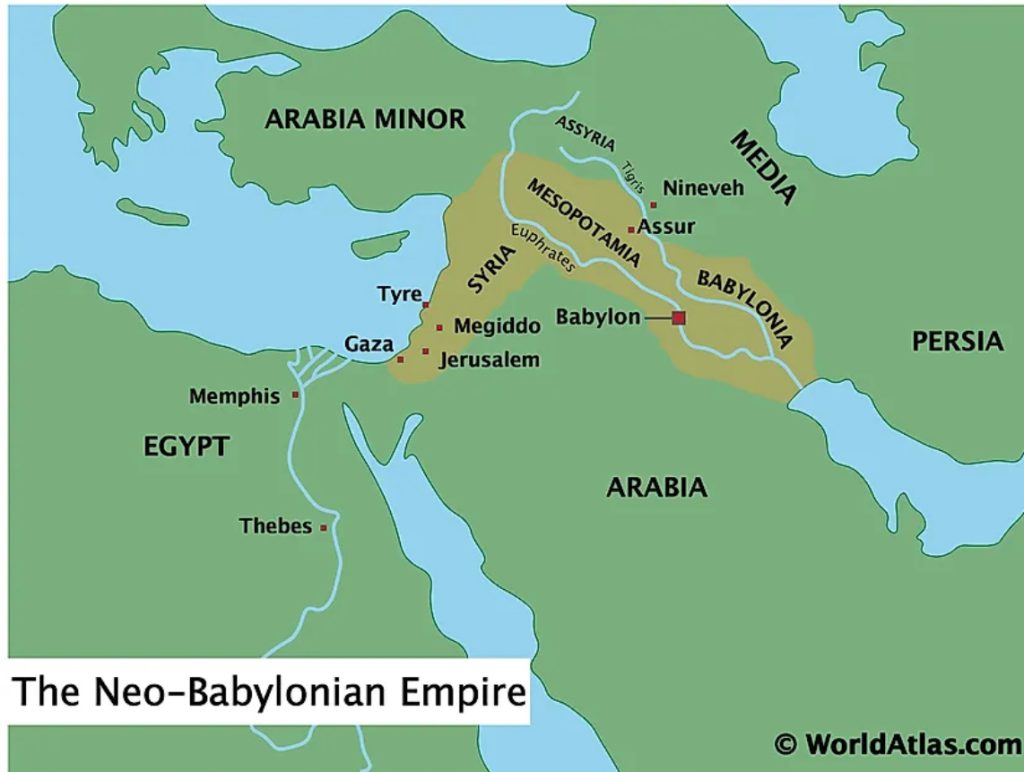1. Historical Overview
Babylon was one of the most significant cities in biblical history, representing both a literal empire and a symbolic system of rebellion against God.
• Foundation and Early Growth: Babylon was first mentioned in Genesis 10:8-10, where Nimrod, the great-grandson of Noah, is credited as its founder.
• Tower of Babel (Genesis 11:1-9): Babylon’s early history is marked by the Tower of Babel, symbolizing human pride and rebellion against God. As a result, God confused the languages, dispersing the people.
• Neo-Babylonian Empire (626–539 BC): Under King Nebuchadnezzar II, Babylon reached its peak, conquering Judah in 586 BC, destroying Solomon’s Temple, and taking the Israelites into exile (2 Kings 25; Daniel 1).

• The Fall of Babylon (539 BC): The empire was overthrown by the Medes and Persians under King Cyrus, fulfilling prophecies in Isaiah 13:19-22 and Daniel 5:30-31.
2. Babylon’s Key Biblical Characteristics
Babylon in Scripture represents a dual theme: a powerful world empire and a spiritual system opposed to God.
A. Babylon as a Political Power
• Military Conquest: Babylon was known for its military dominance, particularly the siege and destruction of Jerusalem (2 Chronicles 36:17-21).
• Wealth and Splendor: The city was wealthy and advanced in architecture, with the Hanging Gardens (one of the Seven Wonders of the Ancient World).
• Pride and Humanism: Babylon’s leaders, especially Nebuchadnezzar, exalted themselves above God (Daniel 4:30-37).
B. Babylon as a Spiritual and Cultural System
• Idolatry and False Worship: Babylon is associated with idol worship, including deities such as Marduk, Ishtar, and Bel. The people offered sacrifices to the “Queen of Heaven” (Jeremiah 44:25).
• Occult Practices: Babylonian culture was deeply involved in astrology, magic, and sorcery (Isaiah 47:12-13; Daniel 2:2).
• Worldly Seduction: The city represented materialism and moral corruption, luring people into spiritual compromise (Revelation 18:3-5).
C. Babylon as a Symbol in Prophecy
• A Symbol of Apostasy: Babylon is often a metaphor for rebellious societies that oppose God’s truth.
• End-Time Babylon (Revelation 17-18): In the New Testament, Babylon reappears as the great harlot, a global system of false religion, political power, and economic corruption. It will ultimately be judged by God.
3. Babylon’s Prophetic Lessons
• Judgment on the Proud: Like Nebuchadnezzar’s humbling (Daniel 4), God judges nations and individuals who exalt themselves above Him.
• Call to Come Out of Babylon: Revelation 18:4 calls believers to separate themselves from Babylon’s corrupt influence.
• God’s Sovereignty Over Kingdoms: Daniel 2:21 reminds us that God “removes kings and establishes kings” according to His divine plan.
Conclusion
Babylon’s history teaches us about the dangers of pride, idolatry, and worldliness. It serves as both a historical warning and a prophetic message for believers today, urging faithfulness to God in the midst of a fallen world.
![]()



